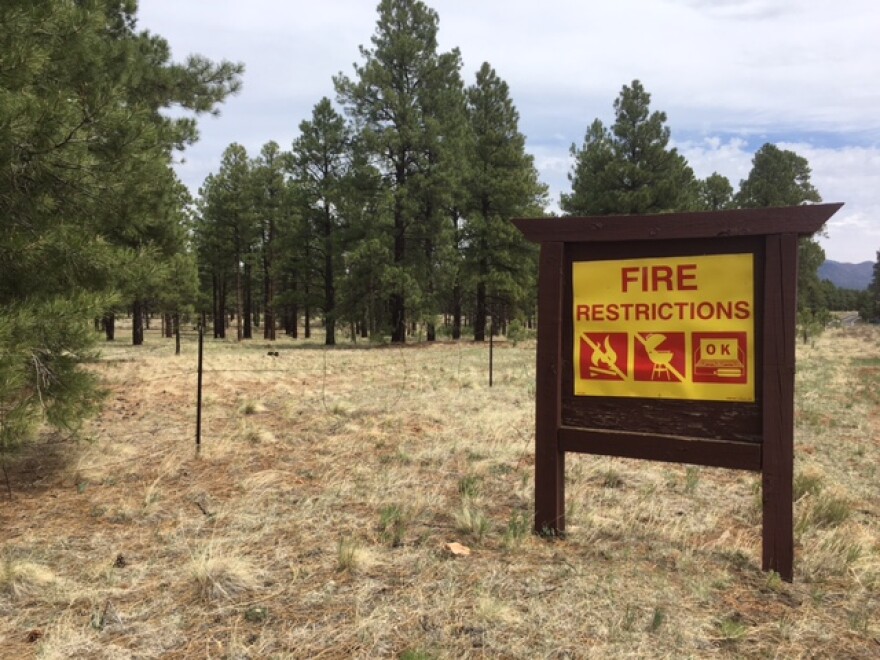Hot and dry conditions are set to continue throughout the region, and with that comes the growing threat wildfire. Firefighters have already responded to numerous blazes amid northern Arizona’s traditional fire season.
On the Coconino National Forest and elsewhere officials have put fire restrictions in place as temperatures climb and humidity drops. In the coming days, daytime highs of 5 to 10 degrees above average are expected, which could ratchet up the chance for wildfires. Randi Shaffer is a spokesperson for the Coconino.
"We’re about par for the course here in northern Arizona. It is hot, it is dry and we are in very high fire danger across all three of our districts. So, we really want folks to abide by all posted signage and when in doubt, just don’t start a campfire."
Shaffer says over Memorial Day weekend, forest personnel discovered 50 abandoned campfires and small wildfires. And last week the Bravo Fire at Camp Navajo west of Flagstaff triggered pre-evacuation notices for some residents. Firefighters are currently trying to contain a wildfire near Kingman, another in the White Mountains and other smaller fires throughout the area.
Along with the Coconino, the Kaibab and Prescott national forests have also raised fire danger to “very high.” Stage 1 fire restrictions are in effect on the Coconino, Prescott, Tonto and parts of the Apache-Sitgreaves national forests, which limits campfires to designated areas and bans outdoor smoking.
It has been only about two weeks since the unofficial start to northern Arizona's wildfire season. Any major relief from fire danger would come in the form of the annual monsoon season, which is likely weeks, or longer, away.



